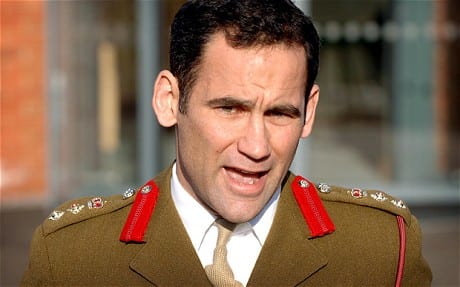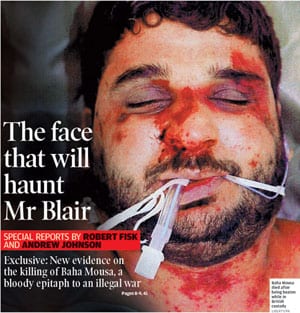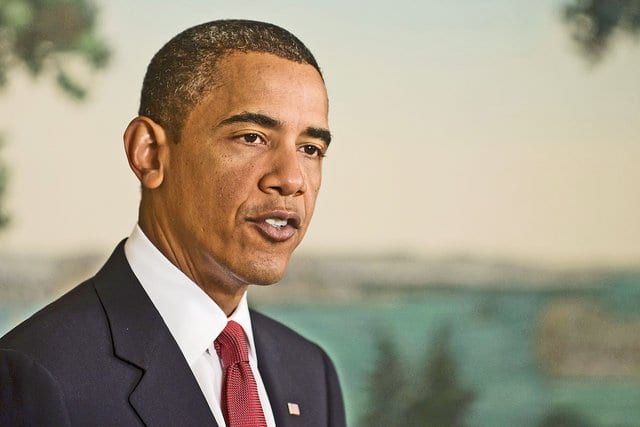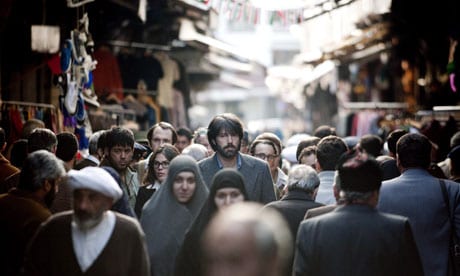OpEds: Lance Armstrong and the world of professional sports
wsws.org
American cyclist Lance Armstrong’s account of his years using performance-enhancing drugs and his more than ten-year campaign to intimidate and discredit critics says a good deal about professional sports and the broader social atmosphere. Armstrong spoke to television talk show host Oprah Winfrey January 13 and the interview was aired in two parts last week.
Armstrong, born in 1971 in Plano, Texas, won the Tour de France cycling race a record seven years in a row from 1999 to 2005, along with many other competitions. He battled testicular cancer that had spread to his brain and lungs in 1996-97. Armstrong retired from cycling in 2005, but came back four years later before finally bowing out in 2011. At the time he was facing a US federal investigation into the doping allegations, although that did not lead to any charges being laid.
In October 2012, the US Anti-Doping Agency issued a lengthy report, accompanied by 1,000 pages of evidence, including statements from 11 former teammates, accusing Armstrong of doping. The USADA alleged that the cyclist had presided over “the most sophisticated, professionalized and successful doping program that sport has ever seen.”
Armstrong has been stripped of his Tour de France titles and all other titles from 1998 onward and been banned for life from all sports that follow the World Anti-Doping Agency code.
Throughout the late 1990s and 2000s, Armstrong attacked anyone who represented a threat to his position in cycling and his cover-up of illicit operations. After French cyclist Christophe Bassons raised the issue of doping in newspaper articles and comments, Armstrong rode alongside him during the 1999 Tour de France and told him, according to Bassons, that “it was a mistake to speak out that way, and he asked why I was doing it.” Bassons continued, “I told him that I’m thinking of the next generation of riders. Then he said ‘Why don’t you leave, then?’”
On French television news at the time, Armstrong repeated his claim that Bassons’ accusations weren’t good “for cycling, for his team, for me, for anybody.” Armstrong added, “If he thinks cycling works like that, he’s wrong and he would be better off going home.” The French rider’s allegations about doping in the sport essentially ended his career.
On numerous occasions, Armstrong went to court to silence accusers, including former friends and colleagues, as well as media outlets, winning millions of dollars in settlements in the process. When Winfrey asked him in the televised interview about masseuse Emma O’Reilly, who reported on Armstrong’s dirty tricks, he acknowledged, “We ran over her, we bullied her.” Did you sue O’Reilly, Armstrong was asked. “To be honest, Oprah, we sued so many people I don’t even [know]. I’m sure we did.”
His very public and strident years-long defense, it turns out, was nothing but a tissue of lies.
This is not a pretty picture, and there is no need to make it any prettier. There is often an instinctive tendency to come to the defense of anyone under assault by the venal American media. However, Armstrong is no Muhammad Ali, suspended from boxing in 1967 because he refused induction into the US Army during the Vietnam War, or track star John Carlos, victimized for his protest at the Mexico City Olympics in 1968. Or even baseball player Magglio Ordóñez and manager Ozzie Guillen, vilified by the media and the ultra-right for comments in support of Hugo Chavez and Fidel Castro, respectively.
Armstrong was clearly part of the problem. He apparently operated a type of mini-Mafia in cycling, bringing to the sport the very worst of American predatory entrepreneurship. There is in his story—particularly his readiness to destroy the careers of other people—something sinister and disturbing. In the Winfrey interview, he referred to his “win at all costs” attitude.
There is, of course, a large dose of hypocrisy in the media assault on him now. Many of those doing the assaulting participated in building the cyclist into a demigod-like celebrity figure, with his heroic story of returning from near death to triumph at the Tour de France. Such a figure inevitably attracts a large crowd of apologists and bloodsuckers.
Major corporate interests were involved in Armstrong’s career, including Nike (which has removed from its web site the 2001 press release for Road to Paris, the documentary the company produced about Armstrong’s preparations for the Tour de France that year), Anheuser-Busch, Trek Bicycle, Giro protective gear, bicycle component makers SRAM and Shimano, AMD [semiconductors], Oakley sports equipment, RadioShack, 24 Hour Fitness, FRS and Honey Stinger (both energy products’ firms) and numerous others.
Investment banker Thomas Weisel, who founded Montgomery Securities, which sold for $1.3 billion in 1997, and later launched Thomas Weisel Partners, a “growth focused investment banking firm,” was a key backer of the company formed to manage the US Postal Service cycling team, which Armstrong joined in 1998.
The ultra-commercialization and degradation of sports created the social and economic context for Armstrong’s wrongdoings. The sums involved are huge. The cyclist told Winfrey that after his fall, various firms called to cancel their relations with him: “You could look at the day-and-a-half when people left. You asked me the cost. I don’t like thinking about it, but it was a $75 million day. All gone and probably never coming back.” For the companies and event organizers involved, of course, the stakes run considerably higher, into the hundreds of millions and billions of dollars.
Doping, by all accounts, was widespread, even quasi-universal, in cycling. Armstrong’s principal contribution seems to have been organization and audacity in its usage. Winfrey noted, “To keep on winning it meant you had to keep taking banned substances to do it? Are you saying that’s how common it was?” Armstrong responded, “Yes, and I’m not sure that this is an acceptable answer, but that’s like saying we have to have air in our tires or we have to have water in our bottles. That was, in my view, part of the job.”
Asked if he felt he had been cheating, Armstrong answered, “I went in and just looked up the definition of cheat and the definition of cheat is to gain an advantage on a rival or foe that they don’t have. I didn’t view it that way. I viewed it as a level playing field.”
In any event, the cycling champion’s ruthless outlook did not come out of the blue. Armstrong matured in the Reagan-Bush-Clinton years, when the “free market,” selfishness and greed were worshipped at every turn by the entire media and political establishment. “Force works,” declared the Wall Street Journal following the war on Iraq in 1990-91, and the notion that bullying and violence were the solution to each and every problem was communicated through the political system, popular culture and the sports industry.
One doesn’t want to exaggerate, but Armstrong, in his intimidation tactics, relentless, almost provocative, lying, and his apparent belief he could get away with anything, seems to have borrowed more than a little from official America’s relations with the rest of the globe over the past two decades.
Bound up with the money, corporate sponsorships and emergence of the “athlete as entrepreneur” has been the advent of the celebrity culture in America, which also swept Armstrong along in its wake. Indeed, his conversation with Oprah Winfrey, on national television, was one of that culture’s false and stage-managed operations. (No doubt all sorts of legal and financial calculations went into Armstrong’s appearance, including perhaps the first step in a process of publicly rehabilitating himself as part of an effort to get his lifetime sports ban lifted.)
One of the country’s richest individuals, Winfrey assiduously stayed away from any queries or comments that might have shown the sports-entertainment industry, of which she is a part, or American business operations in general in a bad light.
The questions remained at a low level, all directed toward making Armstrong accept personal responsibility for his actions, which he obediently did, according to the well-established rules of the American public confession genre. “All the fault and all the blame here falls on me,” the cyclist told the interviewer, who concluded her program helpfully with the Biblical maxim that “the truth will set you free.”
Armstrong succumbed to strong pressures in a generally demoralized and demoralizing climate. One can explain and understand his actions without for an instant endorsing them. By his reckless and criminal activity, he squandered his considerable skills and ruined his public standing forever. The generation now coming into active life—in sports, art, politics and elsewhere—will, we are convinced, produce from among its midst far more widely a different sort of human personality—one drawn to principles and able to resist the corrupting pressures of the sports-media-entertainment industry.



